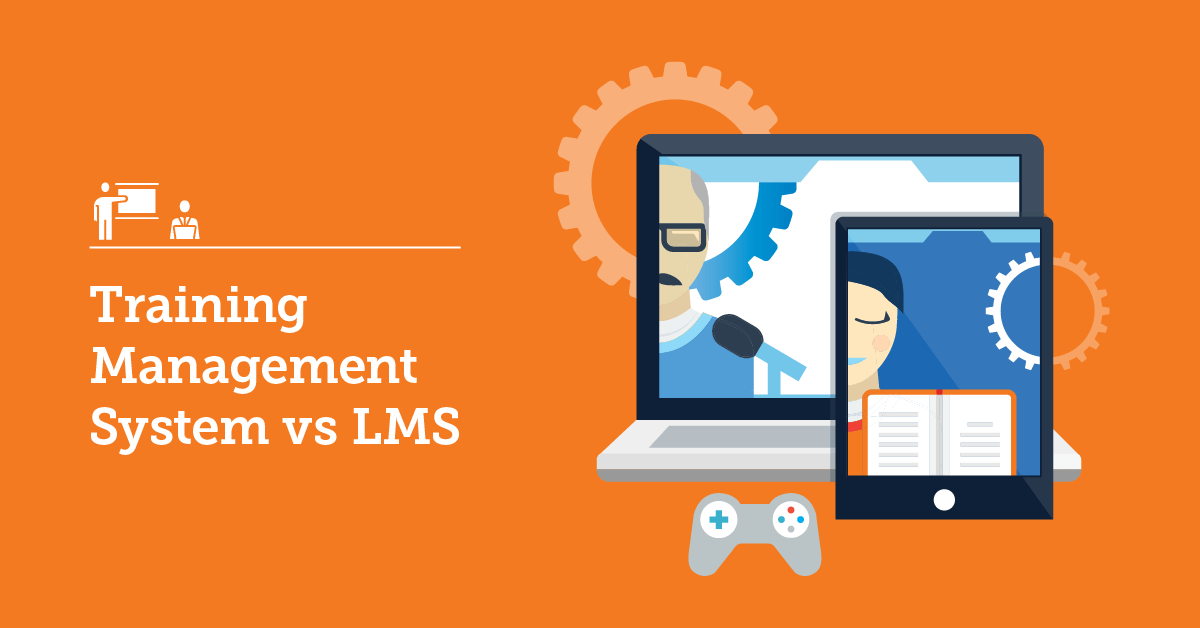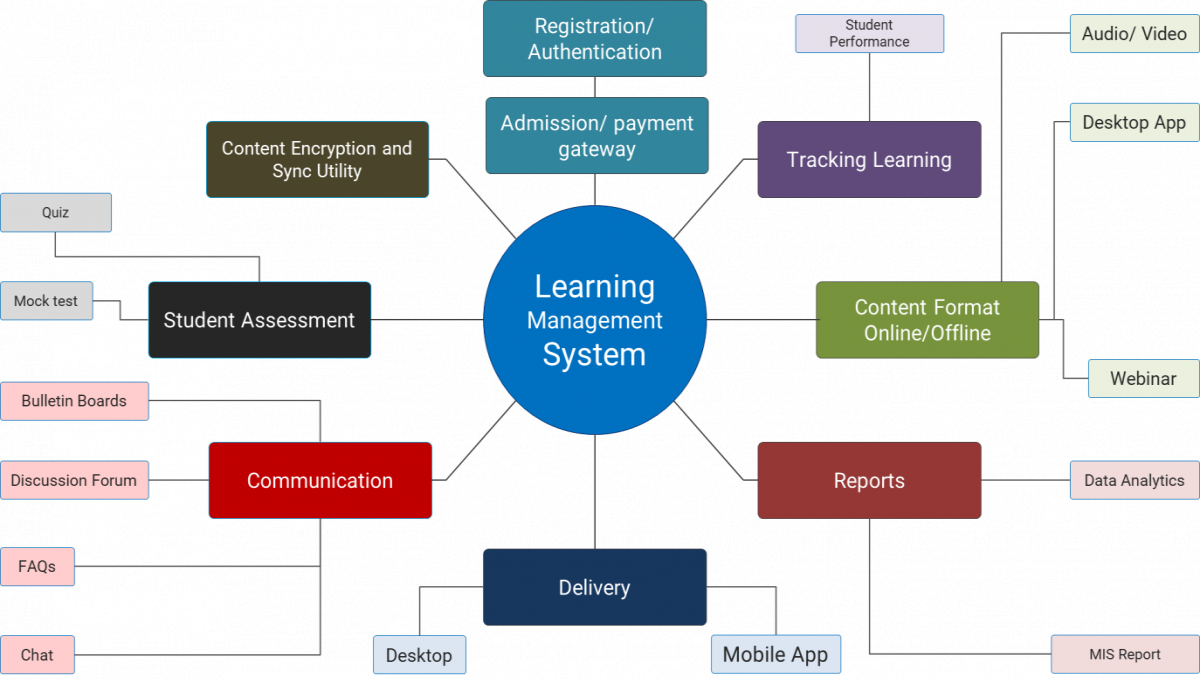Maximize Discovering Effectiveness With a Powerful Knowing Management System
In today's fast-paced educational landscape, the significance of a durable Knowing Management System (LMS) can not be overemphasized. The real capacity of an LMS expands past these attributes; it additionally opens up the door to ingenious understanding methods that might redefine exactly how we approach education in the future.
Comprehending Discovering Management Solution
Knowing Management Solution (LMS) are progressively utilized in instructional and company settings to simplify the distribution of material and track learner development. These platforms function as centralized databases for educational sources, permitting trainers and trainers to create, take care of, and disperse various kinds of discovering products, including analyses, quizzes, and video clips. By leveraging technology, LMSs help with a more reliable learning experience, suiting diverse understanding styles and timetables.
The rise of LMSs can be credited to the growing demand for flexible and scalable knowing options. Organizations and schools deal with continuous needs to improve training effectiveness while taking care of time and resource restraints. LMSs address these difficulties by enabling asynchronous understanding, where learners can access material at their convenience, thus promoting self-paced education and learning.
Additionally, LMSs supply valuable analytics and reporting abilities, permitting managers and instructors to keep an eye on learner interaction and efficiency. This data-driven approach sustains constant improvement in educational methods and content distribution. Overall, comprehending the role of LMSs in contemporary education and learning and training is crucial for stakeholders intending to enhance discovering end results and cultivate a culture of continuous growth.

Trick Features of an Efficient LMS
A reliable Knowing Management System (LMS) need to include a variety of vital features to satisfy the varied needs of learners and instructors alike. User-friendly navigation is essential, allowing individuals to conveniently access training courses, sources, and support. In addition, customizable control panels permit both teachers and students to customize their experience, boosting involvement and use.
Another crucial function is durable analysis and reporting capabilities, enabling educators to track learner progression, efficiency metrics, and conclusion prices. This data-driven method helps with notified decision-making concerning educational techniques. An effective LMS must sustain various material layouts, including video clips, tests, and interactive modules, providing to various learning designs.
Assimilation with third-party devices and systems is also vital, allowing seamless connection with various other educational innovations and resources. Moreover, mobile availability guarantees that learners can involve with material anytime, anywhere, advertising versatility and convenience.
Finally, effective interaction tools, such as discussion forums and messaging systems, foster cooperation and interaction amongst students and instructors (Canvas Singapore). By incorporating these crucial attributes, an LMS can significantly improve the learning experience, eventually bring about enhanced instructional outcomes
Advantages of Making Use Of an LMS
The implementation of a Learning Administration System (LMS) offers many benefits that can considerably boost the educational experience for both students and trainers. One of the key This Site benefits is the capability to provide material in a well organized and centralized manner, allowing easy gain access to for students anytime and anywhere. This versatility suits varied learning designs and rates, promoting a more tailored educational journey.
Moreover, an LMS promotes streamlined communication in between trainees and trainers, improving engagement with conversation online forums, messaging, and responses devices. The capacity to track progression and efficiency permits instructors to make data-driven decisions, guaranteeing that discovering goals are fulfilled properly.
In addition, the assimilation of multimedia sources, such as video clips and interactive tests, improves the finding out experience, accommodating numerous choices and boosting retention. Canvas Singapore. Cost-effectiveness is one more considerable benefit, as an LMS minimizes the need for physical materials and minimizes traveling expenses associated with traditional training
Applying an LMS Successfully
Effective application of a Knowing Management System (LMS) depends upon cautious preparation and implementation, guaranteeing that both students and educators are geared up to optimize its advantages. The first action entails evaluating the certain demands of the establishment, consisting of comprehending the objectives, target market, and wanted end results. This evaluation needs to guide the choice of an LMS that straightens with these goals.

Furthermore, incorporating the LMS with existing systems, such as student details systems or content databases, promotes a smooth individual experience. Normal assessment and feedback collection from individuals can aid identify locations for improvement and improve overall contentment.
Future Trends in Understanding Administration
As educational landscapes progress, the future of Understanding Management Solution (LMS) is positioned to welcome instructional strategies and innovative modern technologies. One of one of the most substantial patterns is the assimilation of expert system (AI) and equipment learning, which will customize the learning experience by examining specific student information to suggest customized resources and understanding paths. This personalization boosts engagement and retention.
Additionally, the increase of microlearning-- brief, concentrated segments of learning-- will be assisted in by LMS systems, lining up with the hectic nature of contemporary life. Mobile-first styles will certainly further enhance address availability, permitting students to involve with content anytime and anywhere.
Another essential pattern is the consolidation of immersive technologies like virtual fact (VR) and increased fact (AR), which will certainly give experiential discovering possibilities that were formerly unattainable. These innovations can replicate real-world situations, fostering deeper understanding and skill procurement.
Verdict
In verdict, a powerful Learning Monitoring System (LMS) functions as an essential device for enhancing instructional experiences. By streamlining resources, accommodating varied understanding styles, and incorporating evaluation tools, an LMS advertises self-paced knowing and progress monitoring. Its capacities in promoting partnership and communication significantly contribute to student interaction and retention. As innovation proceeds continue reading this to develop, the LMS will play a progressively important role fit the future of education and learning and making the most of learning effectiveness.
By leveraging innovation, LMSs facilitate a much more effective discovering experience, suiting varied knowing designs and schedules.
A reliable Learning Administration System (LMS) should include a variety of key functions to satisfy the varied requirements of teachers and students alike.The execution of a Knowing Management System (LMS) provides countless advantages that can substantially improve the instructional experience for both trainers and learners. One of the most significant patterns is the assimilation of man-made intelligence (AI) and maker knowing, which will customize the knowing experience by assessing individual learner data to recommend customized sources and discovering pathways. By systematizing resources, suiting varied learning designs, and integrating assessment tools, an LMS promotes self-paced knowing and progression monitoring.